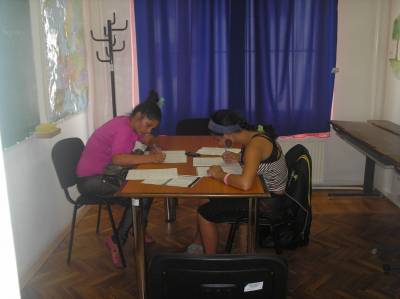Operating for almost a decade in Hungary, tanodas are community-based extracurricular schools. They run after school and aim to support and teach disadvantaged Romani students; they aim to foster their success at school and improve their future chances in the labor market and social integration, since the Hungarian public education system has failed to respond to their needs. Tanodas offer tutoring based on individual development, community, cultural and sport activities, and work to strengthen the relationship between schools and parents.
According to Hungary’s previous Public Education Act, the tasks of the Hungarian Ministry of Education shall include the “designing and wide spreading of extracurricular methods (’Tanoda’) in order to support the educational success of disadvantaged pupils.” However, the Public Education Act was modified in 2012 and tanodas are no longer included or specified in the new law, the consequence being the threatened closure of scores of tanodas in Hungary, particularly in remote villages – if it were not for emergency funding provided by the Roma Education Fund and Open Society Foundations to maintain their quality learning environment.
The Roma Education Fund, together with the Open Society Foundation’s Making the Most of EU Funds, supported those tanodas experiencing unprecedented financial difficulties. Despite the apparent availability of European Union funding for extracurricular study groups since 2004, the EU Structural Funds were unable to ensure their continuity because more than one year had passed since the last official call for funding in Hungary. The aim of this emergency fund has been to give bridging resources and know-how to those tanodas that want to apply to the Structural Funds but could not have survived in the interim.
In the last decade tanodas have played a crucial role in local community development and the improvement of children’s skills and academic achievements. This joint endeavor by the Roma Education Fund and Making the Most of EU Funds have ensured the continuous operation of tanodas and the academic achievements of those children who were involved in these institutions. The maximum grant was EUR 10,000 per tanoda for eight months, which could be spent on maintance and educational activities. REF commissioned TÁRKI-TUDOK Zrt., to prepare an assessment regarding all tanodas, the basis for an upcoming study. In the autumn the REF will present the results of a longitudinal study on the quantitative and qualitative results of the 19 tanodas it has supported along with concrete suggestions for policy makers and practitioners.
Nineteen tanodas have received grants from the emergency fund, reaching 663 children for a total of just over EUR 180,000. The project covered almost whole Hungary, because tanodas were presented from every region of the country. Almost half of the Tanodas have since requested an extension of funding due to the unpredictability of the Structural Funds in Hungary (known locally as TAMOP). It remains unknown when the Structural Funds will announce the next call, when any decision will be taken and when any winning grants will be transferred. In response, REF has extended the implementations of some projects and is lobbying for the current Public Education Act to be amended to reflect the importance of tanodas in alleviating early school leaving of Romani students in Hungary.
Roland Ferkovics is an intern at the Roma Education Fund. Nikoletta Olah is a REF Country Facilitator in Hungary.
Tags: Roma

